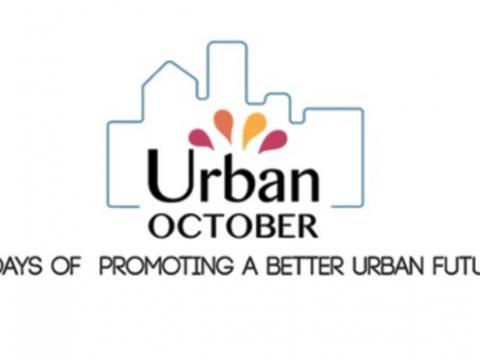Celebrating Urban October

Urban October: 31 Days of Promoting a Better Urban Future
'Urban October' was launched by UN-Habitat in 2014 to emphasise the world’s urban challenges and engage the international community towards The New Urban Agenda. This year, the month of October starts with World Habitat Day under the motto ‘Public Spaces For All’ and concludes with World Cities Day under the motto ‘Designed to Live Together’.
This Urban October holds even greater significance following the adoption of the 2030 Agenda for Sustainable Development and its Sustainable Development Goals, including SDG11 to “Make cities and human settlements inclusive, safe, resilient and sustainable”. Read about The Global Goals, including the urban SDG.
Today, World Habitat Day highlights how well designed and managed public space is a key asset to a city and has a positive impact on its economy, environment, safety, health, integration and connectivity. On October 31, World Cities Day will raise the importance of good urban design as the foundation for developing socially integrated and prosperous cities.
Watch a video of UN-Habitat’s Executive Director, Dr Joan Clos, discussing Urban October's themes.
How is World Vision celebrating Urban October?
As a World Urban Campaign lead partner and Co-Chair of the General Assembly of Partners’ Children and Youth Constituent Group for Habitat III, World Vision is advocating for children and youth as valued contributors in The New Urban Agenda.
On October 28 in Geneva, Switzerland, World Vision will host a “Healthy and Just Cities for Children and Youth” Urban Thinkers Campus, one of the few campuses focused exclusively on children and youth as part of UN-Habitat’s World Urban Campaign initiative.
The event will focus on principles, policies and action planning aimed at improving access to water, waste and sanitation within informal settlements. It will also explore possible business models to engage young people in safe and dignified employment within these sectors.
Featuring speakers from UN-Habitat, WHO, ILO, Eawag, WasteAID, SKAT and Plastic Bank, the event invites participants to debate and build consensus on solutions that will contribute to healthy and just cities for children and youth.
Key recommendations from this Campus will inform UN-Habitat’s The City We Need, to be submitted to the Habitat III Secretariat for consideration into The New Urban Agenda.